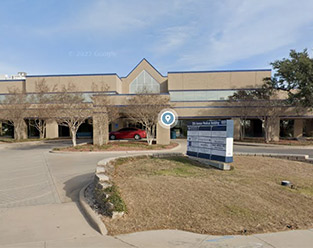Workers’ Compensation Benefits
As an employee working in Texas, you may be entitled to workers’ compensation benefits if you have sustained a work-related injury or illness. Whether your work environment frequently places you in harm’s way or you have experienced a surprising fluke accident, you should not have to bear the brunt of lost wages, lowered quality of life, medical expenses, and any continued impairments.
If your employer does have workers’ compensation insurance, you must take certain steps to obtain benefits. You must understand your rights and responsibilities to successfully file a claim. (If you still have questions after reading through this page, please refer to the complete A-Z topic list of workers’ compensation from the TDI site.)
Understanding Your Rights
If you have been injured on the job or have contracted a disease due to unsafe working conditions, you may be due compensation. You are eligible for workers’ compensation only if your employer has workers’ compensation insurance.
At any point in your claim process, you have the rights to:
- Work with an attorney
- Choose the doctor who will treat you (Note: not all doctors will work with workers’ compensation cases. Additionally, certain insurance agencies require claims to be treated by in-network doctors. If you choose the wrong doctor without notifying the insurance provider, you risk your treatments not being covered)
- Keep your claim private
- Work with the Office of Injured Employee Counsel (OIEC) to assist in your claims process if you do not have an attorney
Depending on the severity of your work injury, you could have the right to one or more of the following income benefits:
Temporary income benefits(TIBs): This is the first benefit you could receive. If your injury keeps you out of work for 7 days (they do not have to be consecutive workdays), you are eligible for temporary income benefits by the 8th missed day of work. The insurance agency will average your weekly wages for the 13 weeks before your injury and pay you weekly 70% to 75% of this average. For more information, visit tdi.texas.gov/wc/employee/benefits.html.
The end date to your TIBs will be one of the following:(1) the day you return to work at your preinjury pay rate,(2)the date on which your doctor determines you have received the maximum medical benefits and no further healing will occur, or (3)the date on which you reach the legal limit, which is 104 weeks from your initial benefit payment.
Your employer may allow you to return to work at a different position that better accommodates your physical state. This does not restrict your ability to receive TIBs if you are being paid less than your previous wages.
Impairment income benefits(IIBs): For injuries that result in permanent damage, you may be eligible for impairment income benefits. These benefits equal 70% of your averaged weekly wages. Workers may receive IIBs regardless of whether they return to work and the amount of money they earn. A doctor provides an impairment rating based on permanent damage. For each percentage point of the rating, you will receive 3 weeks of benefits.
Supplemental income benefits(SIBs): Injured employees are eligible for supplemental income benefits if all of these criteria are met:
- You were given an impairment rating of 15% or higher
- You are unable to return to work or have returned to work but are earning less than 80% of your preinjury weekly wages
- You meet job search requirements or are actively in a vocational rehabilitation program to help you find or keep a job
- You did not accept a lump sum payment for your impairment benefits
SIBs are paid monthly, and recipients are required to apply/reapply every 3 months. The payout amount is equal to 80% of the difference between 80% of your original weekly wages and your postinjury weekly wages.
Lifetime income benefits (LIBs): These benefits apply only to injuries like blindness, loss of two limbs, and brain damage. The payout is 75% of what you made each week with a 3% cost of living increase each year. Lifetime income benefits have no end date.
Medical benefits: Medical benefits are awarded to cover reasonable medical expenses to treat your work-related injury or illness. All medical bills resulting from your work-related injuries should be addressed to your employer’s insurance. If you receive a bill for a work-related treatment, you should contact DWC customer service.
Making a Successful Workers’ Comp Claim
It’s very important to understand your role in collecting the necessary data, filling out the right forms, and following the proper procedure. The first step is to notify your employer of your injury/illness within 30 days of its occurrence. Your employer then must send the initial Employer’s First Report of Injury or Illness to the DWC within 1year of the injury.
The DWC will work with your employer to establish the next steps toward approving or denying your claim. For a complete list of all forms involved in a workers’ compensation claim, click here.
You should work closely with TDI’s DWC to monitor the progress of your claim and to follow their guidance on how to fulfill your responsibilities.
How TDI’s DWC Can Help
The Texas Department of Insurance has a workers’ compensation website that provides necessary resources to help explain the claims process, your rights, and what to expect from your employer and the insurance company, including helpful videos found on this page.
After you submit your claim to the TDI DWC, they will work with your employer’s insurance agency to ensure you are properly compensated.
The division will help provide the resources to resolve disputes between injured employees and their employers and mediate any complaints you may have. Take steps outlined here to start your complaint process. To start a dispute, follow the steps on this page.
If you have any questions about your claim or how to file, you can contact the DWC customer service department by calling 800-252-7031 and selecting option 1.





